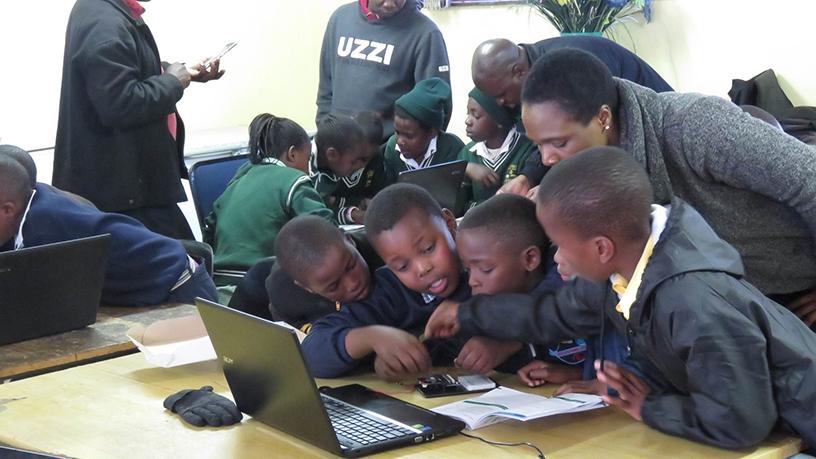
Non-profit educational organisation ORT SA, in partnership with petroleum products supplier Chevron SA, has introduced coding programmes aimed at upskilling 150 learners from previously disadvantaged schools.
ORT was founded in Tsarist Russia in 1880. The term 'ORT' was coined from the acronym of the Russian words 'Obshestvo Remeslenofo Zemledelcheskofo Truda', meaning The Society for Trades and Agricultural Labour.
In SA, ORT was started in 1936 and has trained and empowered thousands of South Africans in business development, cutting-edge teacher training, skills development, and work readiness programmes.
Through the ORT SA STEM Academy, the organisation says it will implement its coding programmes in six previously disadvantaged primary schools and in six high schools in Ivory Park, north of Johannesburg.
In each of the targeted schools, ORT SA facilitators are on hand to train teachers to assist the participants with their projects. After learning the basics of coding, learners start work on their own projects, based on developing programs that find solutions to real-life problems, it adds.
"STEM subjects are at the heart of disruptive technology, which is where the future of our economy lies. Equipping learners with the skills they will need for tomorrow's job market is what makes this programme exciting and is the reason Chevron has chosen to partner with ORT SA," says Jill Koopman, policy, government and public affairs manager at Chevron SA.
The learners are divided into groups of five, and each group is provided with a coding kit which is the 'brain' that they learn to program in order to carry out various tasks such as operating a security system, a drone or a driverless bus, says ORT SA.
"Learning to code is a critical element in the 21st century school curriculum, giving learners the ability not only to use technology, but to create it, as the world ushers in the fourth industrial revolution. Learners equipped with these skills will be in high demand in the labour market of the future," notes Koopman.
Amini Murinda, maths and coding facilitator at the ORT SA STEM Academy, explains: "The main causes of the huge skills gap in SA is that government has not addressed the problems by catering for an array of curricula. The apartheid legacy in education still influences the situation today.
"In the next phase of the programme, the coding projects will be married with entrepreneurship skills. These pupils are so brilliant and their projects are original that they must be taught to be able to sell their ideas, therefore an entrepreneurship programme is the next step."
Mpho Matlala, head of the ORT SA STEM Academy, adds: "Our goal is to reach as many pupils as possible with this critical skill-enhancing programme and we are delighted to welcome Chevron as a valued partner. The pupils will be presenting their projects at an event on 8November 2018. From experience, we can expect the most ingenious projects."
According to Moira De Roche, learning specialist and independent director at the Institute of Information Technology Professionals SA, learning to code has benefits far greater than being able to create apps or programs. It teaches systems, thinking and logic, as well as problem-solving: all essential life skills in the 21st century.
"Coding teaches a learner how to think and solve problems. I think kids are more likely to be interested in coding than in some of the other mundane topics they are forced to sit through at school," explains De Roche.
PwC recently hosted 'Skilled for the future', a five-day skills development boot camp in a bid to upskill and prepare young people for the future workforce. Followed by 12 months of mentoring, the boot camp is a holistic education developmental initiative designed to inspire and build self confidence in learners while at the same time aiming to equip them with leadership and self-development skills.
In a bid to upskill and prepare young people for the future workforce, PwC recently hosted a skills development boot camp in various parts of the country. Held in partnership with the Gauteng Department of Education, the initiative is designed to inspire and build self confidence in learners while at the same time equipping them with leadership and self-development skills, delivered through a five-day boot camp followed by 12 months of mentoring.
"The programme is focused on preparing young people for tomorrow's workforce while unleashing the next generation of business leaders," says Dayalan Govender, PwC partner and engagement leader of the programme at the time. The programme is aimed at raising learners' academic aspirations while providing them with the business and entrepreneurial skills needed to be successful in the corporate world."
Share